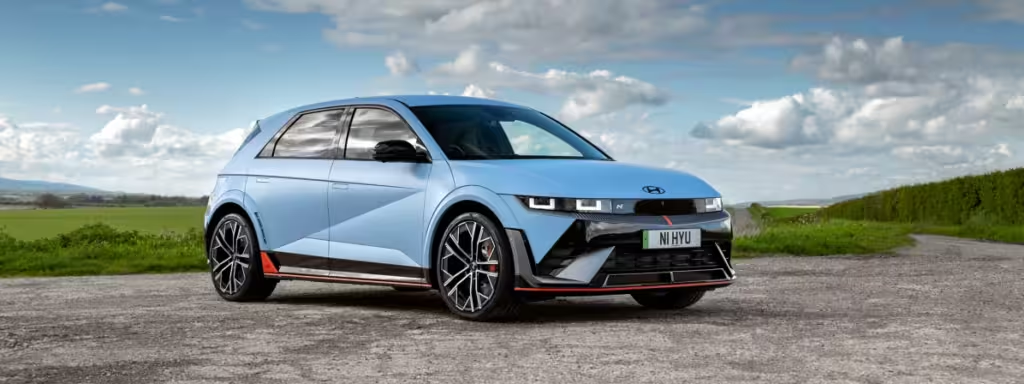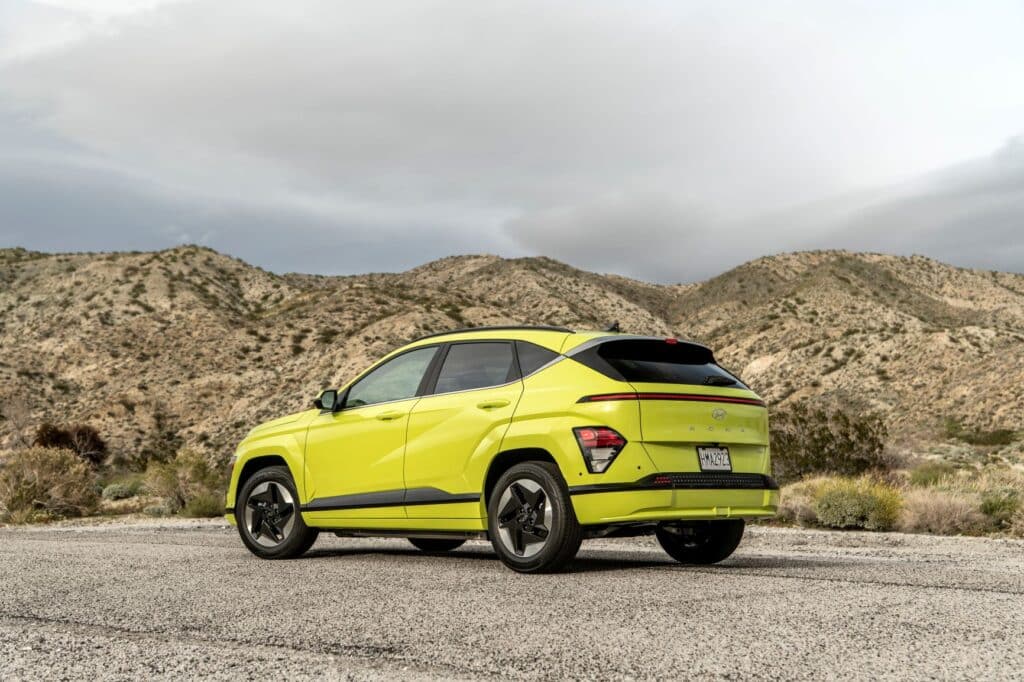Hyundai Motor Group Wins Number Two EV Seller Spot in America for 2024
CNBC reported that the sales of all-electric vehicles (EVs) and hybrid models in the U.S. reached an astounding 20% of new car and truck sales for the first time last year, a significant milestone for “green” vehicles. According to data from Motor Intelligence, more than 3.2 million electrified vehicles were sold, with 1.9 million being hybrid vehicles (including plug-in models) and 1.3 million being fully electric vehicles.
Despite the growth in electrified vehicle sales, traditional gas- and diesel-powered vehicles still represented the majority of the market, though they declined to 79.8% — dipping below 80% for the first time in modern automotive history, a clear indication that mass EV adoption is coming soon to America’s roads.

A Major EV Sales Milestone for Hyundai Motor Group
Patrick George reported at InsideEVs that Hyundai Motor America CEO Randy Parker said, “We’re gonna keep our foot on the accelerator” in an interview last summer. Well, the company did that, and now it has paid off.
According to the latest data from Cox Automotive’s Kelly Blue Book, the Hyundai Motor Group—which includes Hyundai, Kia, and Genesis—has reached the no. 2 spot in U.S. EV sales for 2024, trailing only Tesla. This marks a significant achievement, as the race for the top spots in EV sales was closely contested, particularly between Hyundai and General Motors. Ultimately, Hyundai’s brands secured second place with a total of 124,065 fully electric vehicles sold. This figure excludes hybrid or plug-in hybrid models, where the Korean brands are also experiencing notable growth.

In 2024, General Motors (GM) and Hyundai both made significant strides in the U.S. EV market. GM’s brands—Chevrolet, GMC, Cadillac, and the BrightDrop van division—sold 114,426 EVs, falling short of Hyundai’s 124,065 fully electric vehicles. Had GM continued production of the Chevrolet Bolt EV and EUV, which was paused until the new model’s debut, it likely would have surpassed Hyundai in EV sales. Both GM and Hyundai became among the first automakers to sell 100,000 or more EVs in the U.S.
Ford came close, with 97,865 EVs sold across models like the F-150 Lightning, E-Transit van, and Mustang Mach-E. Tesla saw a decline in sales compared to previous years. Hyundai’s Ioniq 5 led its sales, while the Ford Mustang Mach-E remained the top-selling non-Tesla EV in the U.S.
While 2024 was a record year for EV sales, the industry still faces challenges in scaling production, managing battery costs, addressing tariff and material sourcing issues, and improving charging infrastructure. Nevertheless, EVs have emerged as the fastest-growing segment of new car sales, making up 8% of total new vehicle sales in 2024. This year, it’s expected that one in four new cars sold will be electrified in some way—whether fully electric or hybrid. Despite slower-than-expected growth, the momentum for electric vehicles continues to build.
As the EV race heats up in 2025, the question of which automaker can sustain momentum remains critical. General Motors (GM) has a promising lineup of new electric vehicles, with several electric Cadillac models set to debut. The release of the 2026 Chevy Bolt by the end of 2025, if priced competitively, could be a key factor in GM’s ability to increase its EV market share. If GM can follow through on its plans, it might gain ground against Hyundai and Tesla.
However, Hyundai is not standing still. The automaker is going big in 2025 with several exciting new models. The updated Hyundai Ioniq 5, now featuring a Tesla-style plug and bundled with a standard ChargePoint charger, will be built in the U.S. While it doesn’t yet qualify for EV tax credits, it could soon do so, provided the system remains in place under future administrations. Hyundai is also introducing the U.S.-built Ioniq 9 three-row SUV, the updated Kia EV6, and new Genesis EVs. The Kia EV3, though its U.S. release date remains uncertain, could also be a significant volume driver if priced right.
The competition in 2025 will come down to execution: can GM bring its new models to market on time and at the right price? Will Hyundai’s expanded lineup, including U.S.-built EVs, help it solidify its place as a major player in the U.S. market? It’s shaping up to be an exciting year as all these automakers vie for dominance in the fast-evolving electric vehicle space.

Electric Vehicle Marketing Consultant, Writer and Editor. Publisher EVinfo.net.
Services